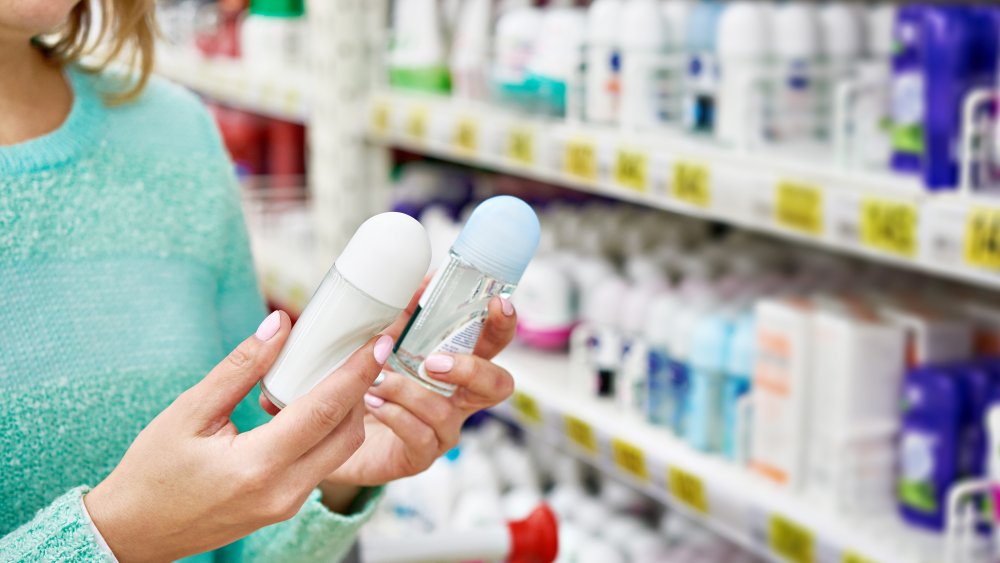The Difference Between Antiperspirant And Deodorant
Shopping for something to control underarm BO is an experience that can leave you standing, flustered, in the personal care aisle for a long time. There are just so many options to choose from. Should you choose deodorant or antiperspirant? 'Natural' or not? Scented or unscented? Does it make any difference?
It does, depending on what you're using it for. Deodorant and antiperspirant serve different purposes, although many products on the market are now deodorant and antiperspirant combos, which do both jobs.
Deodorants work by reducing the odor associated with sweating (via Insider). Sweat itself has very little scent. Underarm odor is actually a byproduct of the reaction between sweat and bacteria found on the skin. Kiran Mian, DO, a dermatologist in New York, explains, "Sweat doesn't actually have an odor. Body odor comes from a byproduct of sweat as bacteria break it down." Deodorant works by increasing the skin's acidity, usually by using alcohol or baking soda, so that bacteria can't multiply as easily.
Choosing the right product can be tough
Antiperspirants, on the other hand, work to actually prevent sweating (via Healthline). They use aluminum compounds to block the opening of sweat glands (known as sweat ducts), reducing the amount of sweat that can be released, and therefore also the amount of odor that can be produced. "Antiperspirant is ideal for those who want to decrease wetness or feel they sweat more than usual," says Mian. About 3 percent of Americans have a condition known as hyperhidrosis, which is characterized by excessive sweating. Interestingly, the Food and Drug Administration (FDA) lists deodorant as a 'cosmetic,' while antiperspirants fall under the category of 'drug' because of the way they affect the normal functioning of the body.
There is some concern among experts that certain compounds found in antiperspirants and deodorants can cause developmental or reproductive problems — or even cancer. Heather Patisaul, Ph.D., an associate professor of biology at North Carolina State University, notes (via Time), "When you eat something, it's broken down by your liver and digestive system. But when you put something on your skin, there are times when it can enter your bloodstream without being metabolized."
Substances like parabens, aluminum, triclosan, and even perfumes can be potentially problematic. If you're concerned, Patisaul recommends choosing a fragrance-free, natural deodorant, being sure to check the ingredient list.


